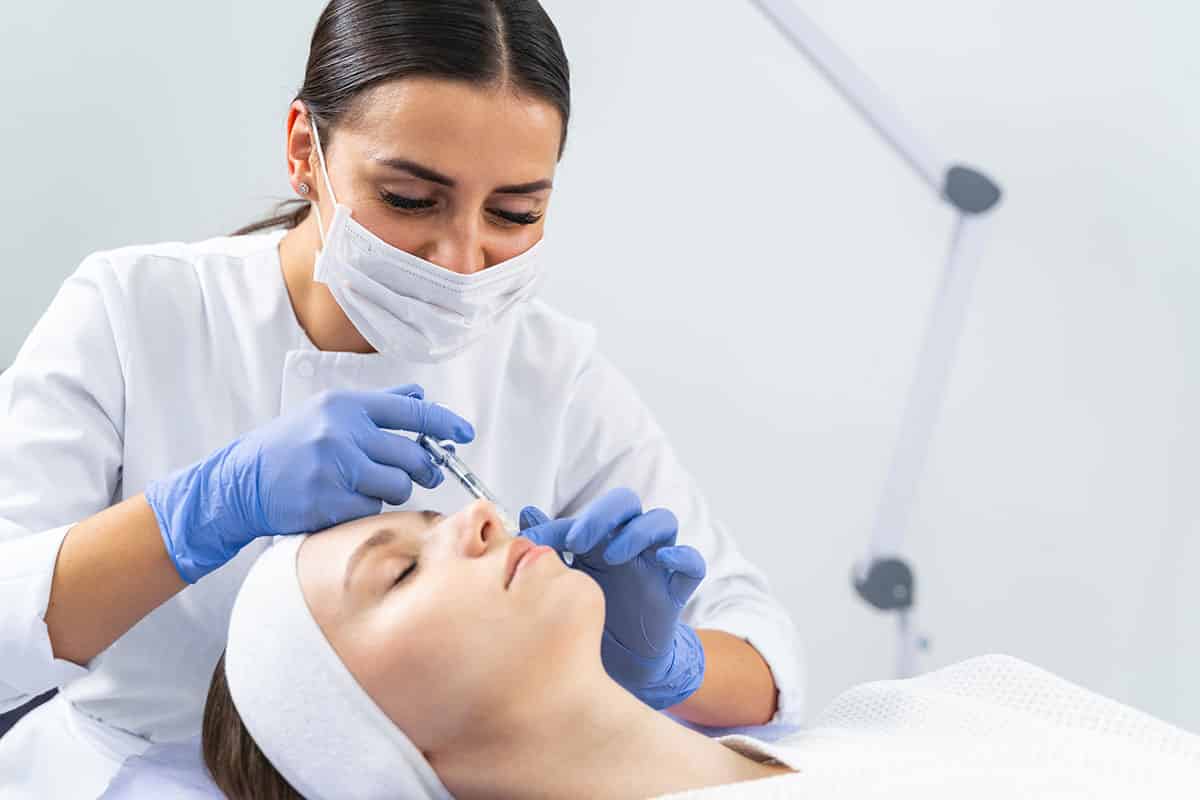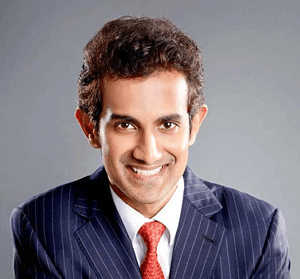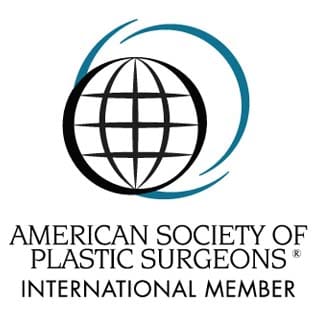
To many people, the idea of injecting a filler into the eye bags sounds a bit odd. Wouldn't that make the puffiness more prominent? But what often evades them is that there are different causes of eye bags.
Sometimes the area under the eyes obtains a sunken appearance because gravity pulls the fat pads down as we age. In that case, dermal fillers may offer an unexpected fix. Continue reading to learn more about the cosmetic procedure.
The tear trough area is that area between the lower lids and the cheeks that looks like a deep crease or a groove. It happens with ageing due to loss of volume in the skin. Tear troughs, or sunken eyes, can cause dark circles when they cast a shadow under the eyes. This leads to a tired appearance.
The best way to treat sunken eyes and tear trough deformity is by using dermal fillers in the under-eye region. You'll often hear the terms tear trough fillers and tear trough treatment.

Dermal fillers appear to be the most suitable treatment for eye bags that occur as a result of volume loss in the under-eye area. They serve to fill up the hollows between the cheeks and the lower lids. Depending on the severity, one or two injections should be used in the tear trough area.
The most common filler material is hyaluronic acid (HA). Being naturally found in the body, it is what makes your skin glowing, supple, and youthful. It's precisely the biocompatibility of the substance that makes it a safe and effective treatment.
There are no side effects or adverse immune reactions since this is not a surgical procedure. Plus, the compound is resorbed over time. Apart from adding volume, it also creates a more youthful appearance.
Another benefit of hyaluronic acid is that it comes in a gel-like form, so it's easy to manipulate with the hands and spread it evenly in the desired areas. There are various brands that offer hyaluronic acid-based fillers. They come in different concentrations and have their pros and cons, respectively.
Before you get started, a consultation is done to determine if you are the right candidate for injectable treatments. Your sunken eyes will be examined.
After that, there is some prep work involved. The first step is to use topical numbing cream on the skin for 15-20 minutes. It is usually applied by a nurse or another member of the staff.
Next, the specialist will choose strategic points under the eyes that will serve as injection sites. They may mark these to facilitate the injection process.
There are two main techniques to go by when inserting the filler: one is to use a blunt micro-cannula, and the other is to use a sharp needle. The cannula creates less pressure and lowers the chances of swelling and bruising.
Once the method is chosen, the surgeon makes a few injections into the pre-marked areas. And that's it. You can leave the clinic right away. Under eye fillers take about 15 minutes to perform.

You will definitely see some difference right after the treatment, although the area may be a bit swollen, making it look as if your eye bags have become bigger. This will go away after a few days, so don't worry about it.
The full outcome will be noticeable after a week or two. If the hollows did cause shadowing or dark circles, they will improve too.
Your under-eye area should look completely natural as long as you choose a practitioner who knows and understands facial anatomy. If the technician applies too much filler or doesn't select the injection sites carefully, this could lead to overly puffy eyes and dark eye circles.
The good news is that if you go with a hyaluronic acid filler, you can undo the results pretty quickly using a hyaluronidase enzyme. However, you should strive to find someone skilled and qualified who will do everything right rather than trying to fix their mistakes later on.
Absorption is individual and varies from one patient to the next. You can never predict exactly how long the injectable will take to dissolve, as driven by your immune system. But it is known that fillers last longer under the eyes.
The reason is simple. Your under-eye area is not as mobile as your forehead or lips, so your body takes some time before it resorbs it.
Therefore, for some people, under eye fillers can last from one to two years. Semi-permanent fillers might withstand even longer. It's also worth pointing out that the results will gradually become undone, which means that it will take a while before you go back to your pre-treatment face.
When you start noticing volume loss, you should have a consultation with your doctor to check if there is any residual filler left. This will help determine the time of the next touch-up treatment in your under-eye area.
Dermal fillers that go under the eyes can set you back anywhere from S$600 to S$1,500. This includes different types of substances. In a big city like Singapore, you can expect the treatment to be on the higher end of the price spectrum.
Hyaluronic acid fillers run about S$700 to S$1,000 per syringe. If the hollows under your eyes are not so prominent, it will be possible for the surgeon to split one syringe between both sides, which will significantly lower the price.
For people with severe eye hollows, though, one full syringe will be used for one eye area. That's something to bear in mind before you get dermal filler injections.
The cost of the treatment varies per clinic and geographical area. Other factors that influence the bill are the surgeon's skills and qualifications, clinic fees, consultation, and any additional treatments you want to have.
It's important to take into account top-up sessions if you plan to have any, that is. Also, keep in mind that the treatment is not Medisave claimable, so you'll have to pay for all the procedures yourself.
Under eye filler treatments may lead to mild redness, bruising, and swelling at the injection sites. This is a normal occurrence that plastic surgeons usually communicate to patients beforehand.
The best way to decrease the risk of swelling is to remain in an upright position for a few hours following your under-eye filler treatment.
Very rare side effects include skin necrosis and skin infection. They mostly occur as a result of poor injection techniques. Necrosis develops when the blood vessels underneath the skin get blocked or occluded.
If the blood flow to the eyes is cut out, this could lead to blindness. That's why it's essential to consult a certified doctor about your under-eye fillers. Never go to an inexperienced technician with no medical background.
The under-eye area is quite a delicate spot, filled with nerve endings and blood vessels. Advanced knowledge of facial anatomy is required in order to inject under-eye fillers there.
Aside from the medical side effects, there can also be cosmetic complications. For example, the operator may over-fill the tear trough, i.e. use too much product, which leads to festoons or "sausage" bumps.
Another complication is the so-called Tyndall effect. It manifests itself as a bluish tinge in the treatment area and happens as a result of too superficial placement of the injectable. We recommend going with a board-certified plastic surgeon to avoid this unfortunate outcome.
Dermal fillers are one of the best treatments for sunken eyes these days. They don't take too long to carry out and have minimal downtime.
Hyaluronic acid is often the main ingredient in the product. The procedure is not covered by MediSave; hence, patients have to take care of all the expenses.
When it comes to results, they are obvious immediately, but it will take a week or two for the outcome to fully materialise. Repeat sessions are an absolute must if you want to sustain the beautiful effects.
If you have decided to try tear trough fillers, don't forget to get an individualised consultation from a certified practitioner. Someone from our team can provide you with more information about that.

Dr. Shenthilkumar Naidu (Dr. Shens) is a Ministry of Health accredited Consultatn Plastic Surgeon with extensive expertise in cosmetic and reconstructive surgery. He is renowned for his advanced techniques in body contouring and aesthetic enhancements. For more information, visit Shens Clinic.
Monday – Friday: 09:00am – 06:00pm
Saturday: 09:00am – 02:00pm
Sun and PH: Closed
(Strictly by appointment only)

Copyright ⓒ Shens Clinic | Privacy Policy | Terms and Conditions .